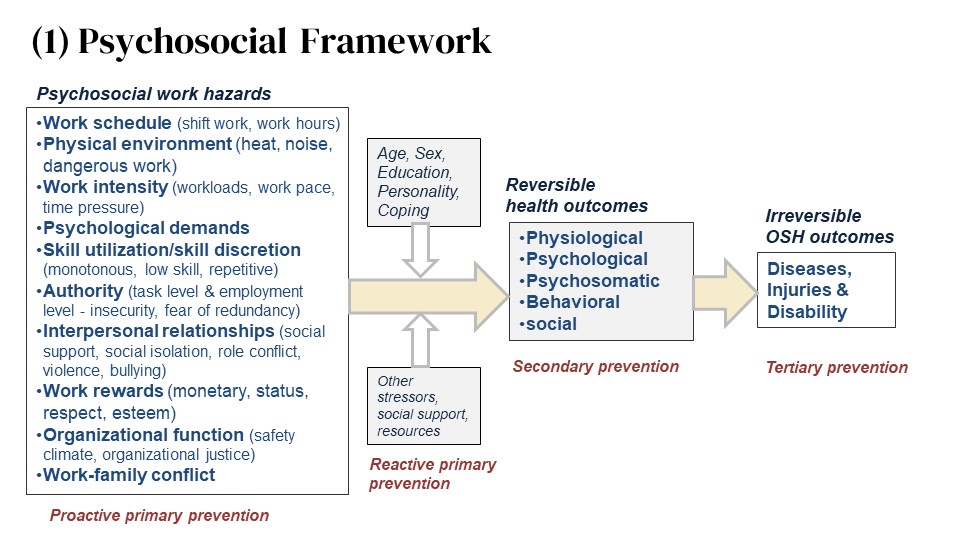



Ongoing Projects
Risk perception and disease experience of workers with silicosis and the responses of the occupational health management system 矽肺症勞工的風險認知、罹病經驗與職業健康管理制度的因應 (NSTC: 2024/08/01~2026/07/31)
Abstract
Silicosis is one of the oldest occupational diseases. Recently, the emergence of artificial stone manufacturing and processing has led to new epidemic increased cases of accelerated silicosis in many high-income countries. These types of rapidly progressive silicosis cases have also emerged in Taiwan, clustering in small-sized facilities, with migrant workers being particularly vulnerable due to the nature of work and a lack of information. While the labor authorities have issued warnings and guidance addressing this issue, active preventative measures have not yet been implemented, especially from workers' perspective. Meanwhile, research is relatively limited regarding the disease experiences of afflicted workers, the risk perceptions and preventive behaviors of workers in high-risk industries, and the response of the current occupational health management system. This research adopts the "Social Determinants of Health" (SDH) analytical framework and is structured into four parts. In the first part, in-depth interviews are conducted to explore the risk perception and experiences of domestic and migrant workers diagnosed with silicosis. The second part utilizes in-depth interviews to gather information regarding risk perceptions and attitudes from workers with high risk of dust exposure and related personnel. The third part employs in-depth interviews to understand the perspectives and experiences of case managers within the occupational health system. The fourth part involves literature analysis, aiming to compare policy responses on the manufacturing, processing, and consumption of artificial stone and managing silicosis cases across countries.
Expected Contributions: The findings of this research aim to enhance our understanding of the situations afflicted workers encounter, thus contributing to improving the occupational health management system. From an academic perspective, the findings of this research should contribute to the international literature by highlighting the uniqueness of occupational health policies and practices in Taiwan.
A study on the utilization of workers’ compensation health services for foreign injured workers and the development of training materials for capacity building among case management personnel 113年調查移工職業傷病服務利用情形暨建置專業人力知能訓練教材 (COAPRE: 2024/05/15~2024/12/31)
Abstract
The number of foreign blue-collar workers in Taiwan has grown steadily since its official opening in 1989. By the end of 2023, it had exceeded 750,000, including nearly 520,000 industrial migrant workers and more than 230,000 social welfare foreign workers. Industrial migrant workers are mainly concentrated in the manufacturing industry with a high risk of occupational injuries; social welfare migrant workers are mostly family caregivers, mostly women, and generally suffer from long working hours and social isolation. Past studies have indicated that workers with occupational injuries often face difficulties in medical treatment, rehabilitation, and return to work. Some workers with occupational injuries also face employment difficulties, economic pressure, labor disputes, etc. Once a foreign migrant worker suffers an occupational accident, he or she may be more vulnerable due to factors such as lack of information, language barriers, and social and cultural barriers. They may have their employment permit terminated, need to be referred, or be forced to repatriate because of their guest worker status. This project aims to explore the post-injury experience of migrant workers and their utilization of workers’ compensation service resources. It also aims to learn about the experience of relevant personnel in the workers’ compensation system in assisting migrant workers in the rehabilitation process. The results of the investigation will help develop teaching plans and teaching materials for the enhancement of the professional capacity of workers’ compensation personnel.
Record of Past Projects (PI, since 2015)
Influence of employment-related welfare programs and labor protection policies on psychosocial work conditions and occupational health (National Science Council, Taiwan; 2013/08-2015/07)
Policies concerning the recognition and compensation of occupational asbestos-related diseases: international experiences and conditions in Taiwan (Ministry of Science and Technology, Taiwan; 2015/08-2017/09)
Health care costs attributed to occupational injuries and diseases in the National Health Insurance system: current conditions and future directions (Taiwan Medical Association; 2017/03-2018/03)
Policy responses towards work stress problems: A comparison study of Japan and Taiwan (Osaka University International Joint Research Promotion Program; 2017/07-2019/03)
Stigma in workers’ compensation: injured workers’ experiences and stakeholders’ perspectives (Ministry of Science and Technology, Taiwan; 2017/08-2020/07)
Influence of platform economy on psychosocial work quality and occupational safety and health risks (Ministry of Science and Technology, Taiwan; 2020/08-2022/07)
Effects of ICT on psychosocial work conditions and occupational safety and health risks: focusing on telework, web-based platform work, and digital surveillance (Ministry of Science and Technology, Taiwan; 2022/08-2024/07)